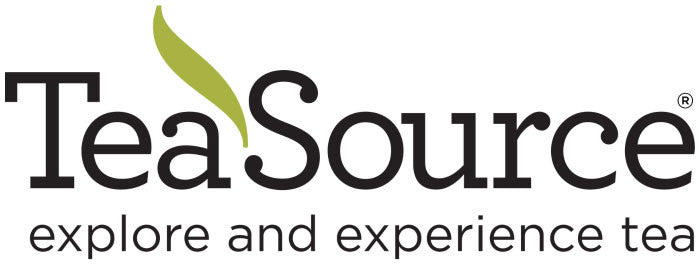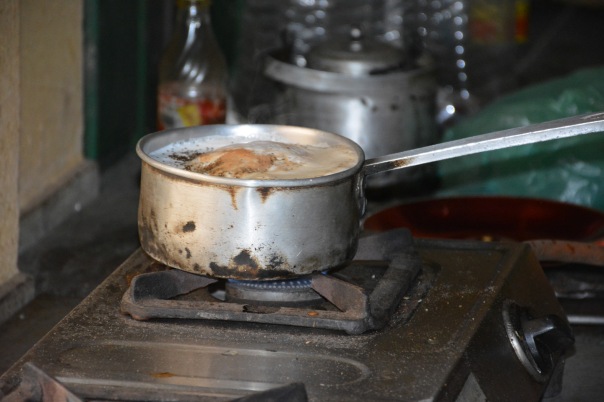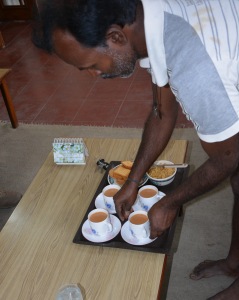“I’ve never heard of that kind of tea before.” Bill Waddington
Milk tea being made at the Rohini Estate, Darjeeling, India.
It’s not very often that I say those words. But it happened while I was in India last month. Almost every tea place I stopped in - street stalls, tea broker’s offices, tea gardens - I would be asked if I wanted tea. Of course I would say “yes.” I would be asked if I wanted “black tea” or “milk tea.” And this gave me pause.
Milk tea being served at the Rohini Estate, Darjeeling.
At first I thought they just meant a black tea served with milk on the side. But it became clear this was not what they meant. “Milk Tea” was a completely different/unique concoction: not black tea, not tea with milk, not “Royal Milk Tea,” not boba or bubble tea, not chai tea (or masala chai). I already knew all of those. Milk tea is its own thing. So of course I asked for it. Then asked for it at the next place, and the next place ... It’s reaalllly good. It is strong, sweet, smooth, milky (duh), and the method of preparation totally took me by surprise. In the interest of full disclosure my wife did not like it, but EVERYONE at TeaSource did.
This is one of the things I most love about tea: almost every culture in the world drinks tea-and almost all of them do something different with it. Tea snobs be damned.
On Thursday, April 17 at Noon (CST) I will be doing a Livestream broadcast, demonstrating how to make Indian Milk Tea. To participate, just click here, log in, then sit back and enjoy!
FYI, we try to do Livestream broadcasts approximately once a month. All are welcome to watch and participate. We announce these on Twitter and Facebook, as well as our monthly email newsletter.
Thanks, -Bill



Comments
I have no explanation whatsoever, other than (paraphrasing) ‘this is the way we’ve always done it.’ It may be that milk (or boiled milk) may be a long-time part of the culture of one of the many ethnic groups of northern India, Nepal, or Tibet-and it evolved from that. Then in the late 19th century as tea became part of all those cultures it was blended with an existing milk drinking tradition. Total speculation on my part. But this sounds like a great topic for a dissertation.
That kind of tea sounds really interesting – I can’t believe the milk doesn’t curdle or that the tea gets really bitter. It sounds like it would be perfect for a cold winter’s day. I wonder what it would be like if you used almond milk in lieu of cow’s milk…
If you missed the live event or if you want to see it again, you can watch it here: http://new.livestream.com/accounts/3409548/milk-tea